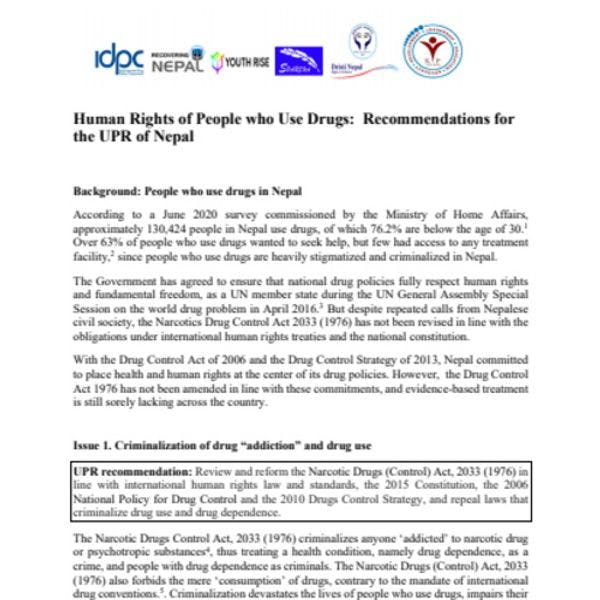Les droits humains des personnes usagères des drogues : Recommandations pour l’EPU du Népal
L’IDPC et une coalition d’ONG, fournissent des recommandations pour assurer que les politiques nationales népalaises en matière de drogues respectent les droits humains et les libertés fondamentales. Pour en savoir plus, en anglais, veuillez lire les informations ci-dessous.
According to a June 2020 survey commissioned by the Ministry of Home Affairs, approximately 130,424 people in Nepal use drugs, of which 76.2% are below the age of 30.1 Over 63% of people who use drugs wanted to seek help, but few had access to any treatment facility, since people who use drugs are heavily stigmatized and criminalized in Nepal.
The Government has agreed to ensure that national drug policies fully respect human rights and fundamental freedom, as a UN member state during the UN General Assembly Special Session on the world drug problem in April 2016.3 But despite repeated calls from Nepalese civil society, the Narcotics Drug Control Act 2033 (1976) has not been revised in line with the obligations under international human rights treaties and the national constitution.
With the Drug Control Act of 2006 and the Drug Control Strategy of 2013, Nepal committed to place health and human rights at the center of its drug policies. However, the Drug Control Act 1976 has not been amended in line with these commitments, and evidence-based treatment is still sorely lacking across the country.
